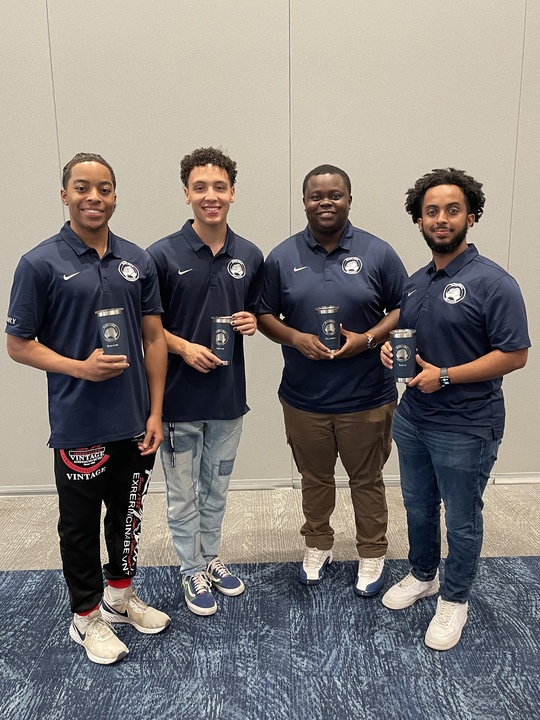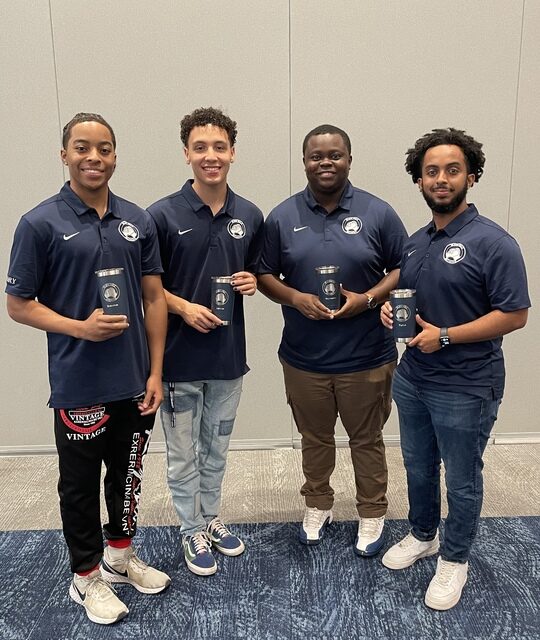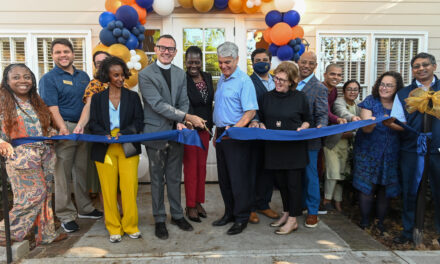Emory University’s Black Male Initiative (BMI) has seen a decrease in the number of students signing up to live on the BMI immersion community floor, with only five applying this year, according to the floor’s resident advisor (RA) Bryan Machani (25C). Of the five residents, Machani said one is an active member of the program.
Housing and Residence Life established the BMI floor in 2017 to accompany the administrative aspect of the program and help facilitate the support of first-year students in BMI.
Seven members of the Class of 2026 signed up to live on the floor last year, according to BMI Executive Fellow Yafet Zewdie (25B). He said this was a “big drop off” from earlier years, noting that he was one of about 15 students who signed up to live on the floor during the 2021-22 academic year.
BMI Executive Fellow Adrian Thierry (25B) recalled that this waning interest created a challenging experience as a sophomore advisor on the BMI floor last year.
“It was mainly really difficult to foster that Black male experience when you … have other individuals that identify across other ethnicities or demographics,” Thierry said.
Established in 2017, BMI aims to support the academic, social and personal success of Black male students throughout their undergraduate and graduate experience at Emory. Students can apply to live on the fifth floor of Hamilton Holmes Hall as part of the BMI Immersion Community, which is open to first-year male students of any race or national origin with a demonstrated commitment to the academic success of the initiative’s members, according to Director of Residential Education Linda Bachman.
“Our goal is to nurture a robust sense of community and support, ultimately contributing to the well-being and flourishing of the entire community,” BMI Program Advisor Kyle Williams wrote in an email to The Emory Wheel.
Machani said that when he applied to college, he knew he would most likely end up at a school that did not have a large Black student population. As a QuestBridge Scholar, Machani explained that it was difficult to find a balance between academics and diversity because not many “elite” schools he was applying to had significant Black student populations.

Black Male Initiative executive fellows at their September luncheon in the Emory Student Center. Courtesy of BMI
Thierry said Emory “stuck out” because of its diversity, which he valued after being one of five students who identified as African American at his high school. In total, 12% of Emory’s student body identifies as Black or African American, according to the most recent data published by the National Center for Education Statistics. Comparatively, at peer institutions such as Vanderbilt University (Tenn.) and Duke University (N.C.) 9% and 7% of students identify as Black or African American.
Upperclassmen like Machani said they were primarily exposed to BMI through advertised, separate pre-orientation programming. When Zewdie matriculated into Emory in 2021, he learned about BMI through pre-orientation programming, which he said was the group’s only “intentional programming” due to the COVID-19 pandemic. Despite this, Zewdie said he was still one of about 15 members of the Class of 2025 who signed up to live on the floor.
However, Zewdie said Emory did not offer separate pre-orientation programming concentrating on BMI for the Class of 2026, as the initiative is now part of the Ignite Pre-Orientation Program, according to Pierre. Zewdie added that BMI did not host any events catered to the Class of 2026 during their first semester.
Thierry said he made most of his friends on the BMI floor, including BMI Executive Fellow Guyberson Pierre (25C) and Zewdie. Thierry and Zewdie now live together as roommates.
“BMI was very much a vital part in being that stepping stone for me to get assimilated to Emory,” Zewdie said.
Pierre said that BMI helped him build relationships that gave him a sense of belonging at Emory, adding that he “forever has a community to turn to.” Now, BMI is hoping to foster that sense of community for future students.
“We’re coming to these students and trying to cater towards their experience to make them feel a part of the Emory community as much as possible,” Thierry said.
Machani expressed that better advertisement of BMI as a housing option to prospective students could improve interest in the program.
“They might see more Black male applicants who would be interested in coming to Emory because they know about this experience,” Machani said.
Additionally, Machani said BMI should collaborate more with Residence Life and Housing Operations. He feels that while the program itself is running well, more communication between the groups would give “more clear expectations” on what the floor is supposed to look like.
Machani added that although the BMI floor’s sophomore advisors organize events such as monthly BMI dinners, Residence Life staff living on the floor are not required to host extra events that are tailored specifically toward BMI, making it “difficult to navigate” being an RA on the floor.
To continue to expand its outreach, BMI has developed several programming modes that increase involvement in the initiative as much as possible.
According to Thierry, BMI’s GroupMe has 136 members, with about 50 active members who consistently attend the group’s general body meetings, which include Barbershop Sundays at the Black Student Alliance House every other week. During the event, members of the initiative come together to enjoy food and football and engage in conversation about what is currently happening at Emory.
“We’re really just able to foster community in that way,” Thierry said. “We feel that it’s very imperative to, as the Black Male Initiative is resurging, to really foster consistent event planning throughout the entirety of the semester and also the year.”
BMI added four additional fellows in Fall 2023. Two students, Joseph Washington (27C) and Jeremy Hannon (25C), are concentrated on internal efforts while Mekeyas Mekuria (27C) and Isaac Banks-Smith (27C) are focused on initiatives to engage with the broader Atlanta community.
According to Thierry, the group’s internal efforts are focused on “nurturing” community, inclusion and compassion among the undergraduate and graduate Black male community. Last semester, BMI partnered with Emory Financial Literacy to host a discussion on efficiently budgeting and saving after college. The program also collaborated with The Kitchen Table, which meets monthly at the Center for Women, to foster community building among BMI’s first-year students and sophomores and Black women at Emory.
BMI Executive Fellow Brandon Jacobs (24B) also serves as BMI’s College Council liaison to give a voice to Black male students.
“Traditionally, College Council hasn’t been a place where Black men have been present,” Jacobs said.
Additionally, Pierre shared that the external side of BMI is tailored toward building relationships with universities, high schools and community-based organizations in the broader Atlanta area. Through a partnership with the Graduation Generation, BMI tutors students at the Barack & Michelle Obama Academy, an elementary school in Atlanta. Jacobs said that BMI connected with local high schools to share what the Black male experience is like at Emory and expose students to the possibilities of higher education and career paths like law and finance.
In addition to expanding outreach to these communities, Washington, Hannon, Mekuria and Banks-Smith will shadow the four executive fellows to ensure that they can take over the leadership of the organization and make sure that BMI will not “die off again,” Zewdie said.
“We’re going to keep passing the torch and ensuring that we’re creating that community consistently,” Zewdie said.
Editor-in-Chief Matthew Chupack (24C) is a resident advisor and had no role in writing or editing this article.





